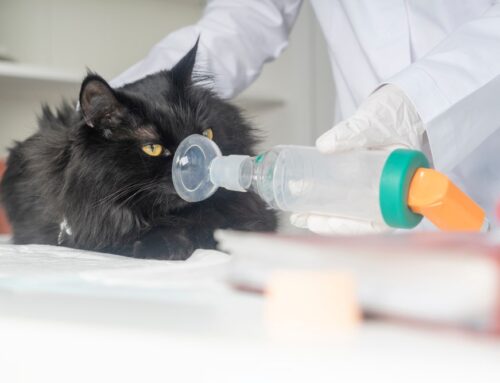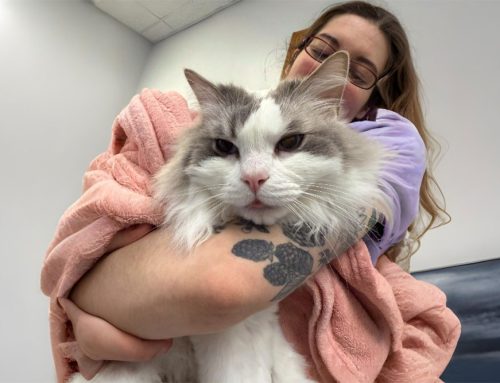Most pet owners rely on veterinary professionals to ensure their four-legged companions’ good health. However, behind the scenes, veterinarians, veterinary technicians, client service representatives (CSRs), and additional support staff face unique challenges that can impact their mental health and overall well-being. Our Animal Urgent Care of Oconomowoc team shares the importance of veterinary mental health and suggests actionable tips for pet owners to support their veterinary team.
Understanding the challenges veterinary professionals face
Veterinary professionals operate at the intersection of medicine, emotion, and ethics, and face a unique set of challenges that can impact their mental and general health. One of the most significant stressors is the emotional intensity of their work. Veterinarians must navigate the emotional bonds between pets and their families, often serving as mediators in difficult decisions about a pet’s health and quality of life.
Consider this scenario. A veterinarian has diagnosed a beloved family pet with a terminal illness. While their primary focus is providing compassionate care and support to the pet, the veterinarian also bears the weight of delivering the distressing news to grieving owners. They must balance empathy with professionalism, offer guidance, and respect the family’s emotions and wishes.
Moreover, veterinary professionals frequently encounter animal abuse or neglect cases, which can be emotionally draining and morally distressing. Witnessing the suffering of innocent animals can take a toll on their mental health, leaving feelings of helplessness, anger, and frustration.
Another significant challenge is euthanasia, a necessary but emotionally taxing aspect of veterinary medicine. Again, veterinarians must navigate the delicate balance between relieving an animal’s suffering and respecting the pet-owner bond. A euthanasia requires a veterinarian’s emotional fortitude because they must remain composed while comforting grieving families.
Beyond the emotional aspects, veterinary professionals also face practical challenges that contribute to stress and burnout. Long hours, often spent standing or performing physically demanding tasks, can lead to physical exhaustion and musculoskeletal injuries. Additionally, the financial pressures of running a practice or managing student debt can compound a veterinary professional’s stress, especially during their early careers.
Furthermore, the demanding nature of veterinary work can strain personal relationships and erode work-life balance. Veterinarians frequently sacrifice time with family and friends to deal with emergency cases or demanding schedules, which can lead to isolation and guilt.
Recognizing poor mental health in veterinary professionals
As a pet owner, recognizing that your veterinary team is struggling and offering compassionate, empathetic support can help immensely. Signs of poor mental health include increased irritability, emotional exhaustion, decreased empathy, and withdrawal from social interactions. Pet owners who are attentive to these signs can offer support and encouragement to those who dedicate their lives to caring for your pet.
Creating a supportive environment for veterinary professionals
Pet owners can play a crucial role in fostering a supportive environment for veterinary professionals. Simple gestures such as expressing gratitude, providing positive feedback, and showing empathy can make a significant difference.
Promoting work-life balance for veterinary professionals
Encouraging a healthy work-life balance is vital for your veterinary team’s mental health. Pet owners can support this balance by respecting hospital hours, avoiding last-minute appointments whenever possible, and understanding the need for downtime. Recognizing that veterinary professionals have—and need—lives outside their practice for a more compassionate and sustainable work environment.
Educating yourself about veterinary professional mental health

Taking the time to educate yourself about the realities of veterinary work can foster empathy and understanding. Learn about your veterinary team’s challenges, the importance of mental health in the workplace, and how you as a pet owner can support veterinary professionals. When you are more informed, you can better advocate for your veterinary team’s well-being.
Nothing brightens our day more than hearing how we made a difference in your pet’s health and happiness. Drop a card in the mail, compose a short post on social media, or simply show your appreciation with a “Thank you” the next time you visit Animal Urgent Care of Oconomowoc. These gestures mean much more to us than you’d think, and they can make a world of difference.







Leave A Comment